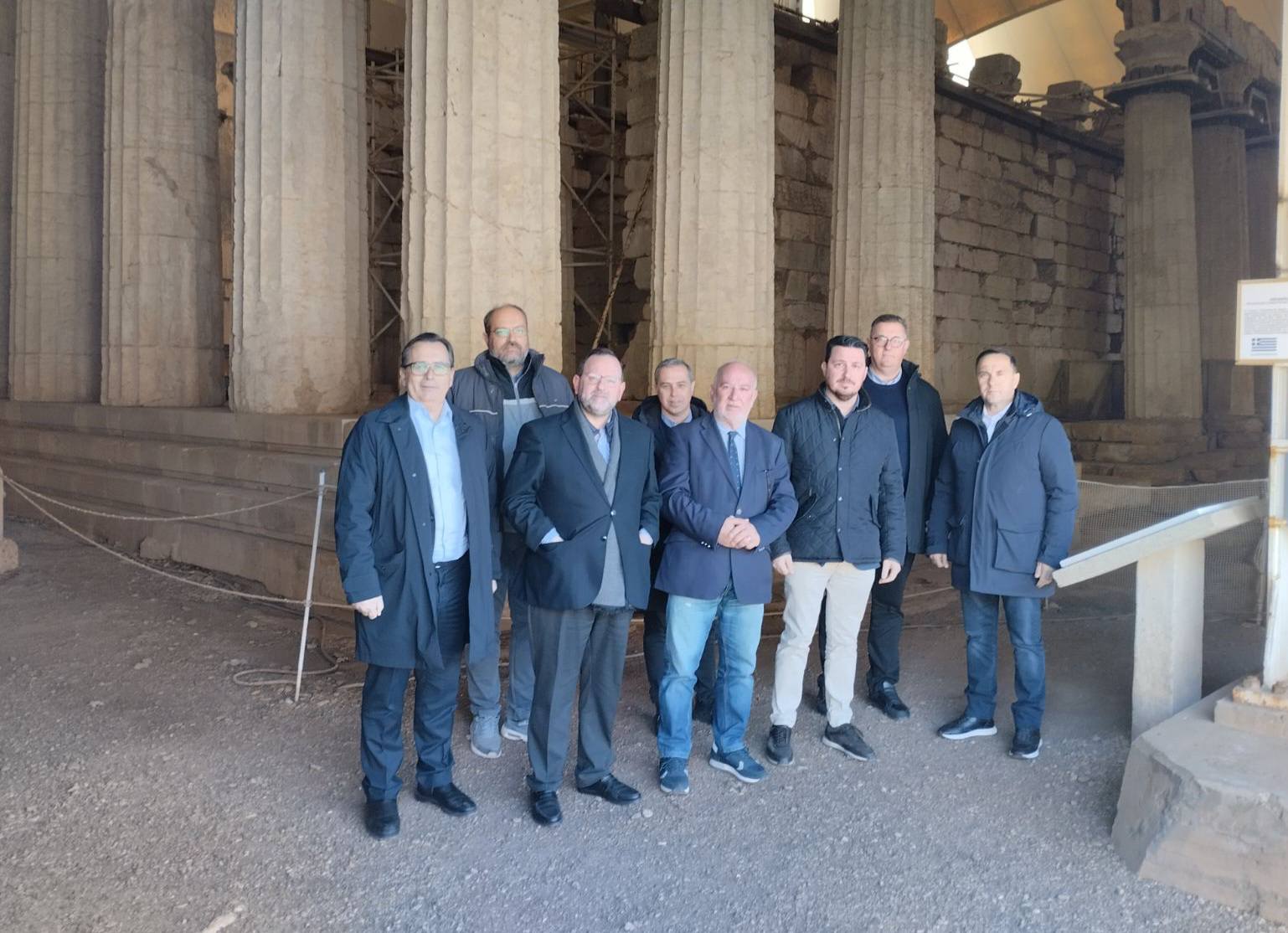The HERIT ADAPT project, funded under the Interreg Euro Med program, aims to enhance the sustainability and resilience of tourism in the Mediterranean. The project recognizes the significance of cultural and natural heritage sites for the development, preservation, and promotion of tourism in Mediterranean countries, as well as the increasing pressures these sites face due to human activity and climate change. In this context, the project seeks to co-create Strategies for More Sustainable and Resilient Tourism by leveraging best international practices and engaging local stakeholders. It aims to strengthen collaboration among key stakeholders by activating interdisciplinary Territorial Working Groups to co-design a sustainable tourism model, which will be tested in eight pilot areas.
In Western Greece, the selected pilot site is the Temple of Apollo Epicurius at Bassae, in Figaleia. This UNESCO World Heritage Site is one of the most significant archaeological landmarks in the Western Greece Region. Designed by Ictinus, the architect of the Parthenon, the temple showcases remarkable architectural innovations, including the combination of all three classical architectural orders of antiquity: Ionic, Doric, and Corinthian.
As part of the project, a high-resolution digitalization of the monument will be conducted. The resulting 3D model will assist in the restoration and conservation efforts of the monument while also being used to promote tourism and attract visitors to the wider region and neighboring municipalities.
In this context, the Territorial Working Group of the Herit Adapt project met on Friday, February 21, 2025, in Andritsaina. The meeting was attended by Mr. Nikolaos Korovesis, Deputy Regional Governor of Ileia, Western Greece, Mr. Panagiotis Sakellaropoulos, Deputy Regional Governor for Tourism Development of the Region of Western Greece, and Mr. Panagiotis Bramos, Deputy Regional Governor for Culture of the Region of Western Greece. Also in attendance were Mr. Dionysios Balioukos, Mayor of Andritsaina-Krestena, and Mr. Konstantinos Mitropoulos, Mayor of Zacharo, alongside Mr. Konstantinos Papadopoulos from the Ephorate of Antiquities of Ilia, Mr. Konstantinos Tzamaloukas from the project team of the Region of Western Greece and officials from the two municipalities. Additionally, Professor Chrysostomos Stylios, Director of the Institute of Industrial Systems – Athena Research Center, and Dr. Athanasios Kalogeras, Research Director of the Institute and Project Coordinator of Herit Adapt, participated.
During the meeting, the challenges and opportunities concerning the monument and the wider area were highlighted, followed by an in-depth discussion. All participating stakeholders reaffirmed their commitment to strengthening the region’s tourism sector and utilizing the results of the Herit Adapt project to achieve this goal.


